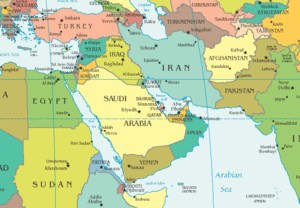
Commentary on Iran’s election fallout from the greater Middle East has been eerily absent for the past eleven days. The wait-and-see posture has been adopted by the region’s leaders and civil groups alike; respectively they are nervous and hopeful. Just as Iran’s 1979 revolution reverberated throughout the region, a democratic one today would inspire students and activists in countries like Saudi Arabia and Egypt. I reached out to an Egyptian friend and pro-democracy writer, Khalil Al-anani for his thoughts on Iran’s political crisis and the repercussions for the rest of the region.
On the nature of Iran’s crisis…
“First, I would say that this crisis is mainly between Ali Khamenei and Hashemi Rafsanjani over the post of Fakih (Islamic Jurist), not between President Mahmoud Ahmadinejad and the challenger Mir Hossein Mousavi. Of course the fuel of the current resistance is youth and reformists but the question is: Is this conflict targeting “wilayat al faqih” theory and the need to develop and change it or a political one targeting the authorities of Khamenei and Ahmadinejad? I would say the goal is mainly political even it takes a religious shape.”
Will the turmoil have a lasting impact on Iran?
“I think that this crisis is a turning point in Iran and the region, not only because it’s the first real challenge since 1979, but also because its consequences for the Islamist movements in the Middle East. Now, what will be the solution? There are two possible outcomes: either Khamenei will have to call for another election or Rafsanjani will have to eliminate and diminish Khamenei authorities. And between both of these two scenarios, there is a possibility to give Mousavi a significant post in the hierarchy of the regime.”
What does this mean for Egypt?
“For Egypt, I would say that we are a more open society than Iran and we have more freedom of expression. Egypt might witness something like what’s happening now in Iran within the next five years or less. We have similar economic, social, and demographic situations.”
I’m intrigued by Khalil’s insinuation that what we’ve witnessed over the past eleven days is just the beginning of momentous changes for the region. Perhaps he is right that Iran’s politics will change significantly moving forward and maybe Egypt will follow suit in the near future. But, the only wise thing for us to do is watch this drama, dare I say revolution, unfold before our eyes and hope for the best.
— Faith Smith


17 comments on “Iran: an Egyptian Perspective”